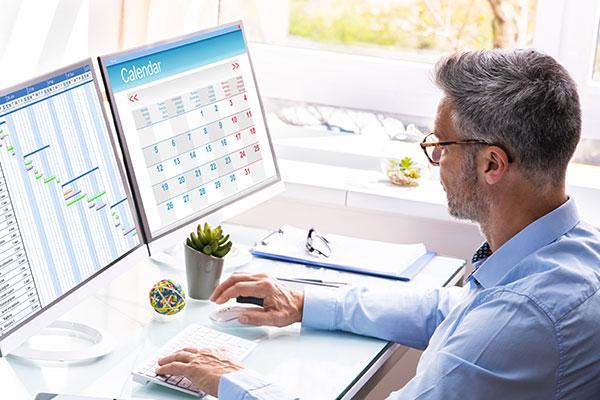
A major reconstruction project is underway in my backyard right now. In fact, I can hear the excavator grinding as I write this sentence. A few weeks ago I got home early and observed the activities of the crew at quitting time. I was impressed with their end-of-day ritual. They spent approximately a half-hour meticulously cleaning their tools and putting them away. They appeared to be discussing their progress and the plans for tomorrow’s work. They concluded by tidying up the yard where they had worked that day.
How do most family lawyers typically end their day? Many run out of the office, papers scattered on their desks, trying to escape the madness of the day. Others wind down by scrolling on their phone or chatting with co-workers. Still others pull a bottle out of their desk drawer to unwind. Based largely on the writing and teaching of Cal Newport, I have discovered a better way.
Newport, in his book Deep Work: Rules for Focused Success in a Distracted World (Grand Central Publishing, 2016), discusses end-of-day rituals that, according to him, lead to less anxiety and a sense of closure at the end of the day. “This ritual,” Newport observes, “should ensure that every task, goal, or project has been reviewed and that for each you have confirmed that either (1) you have a plan you trust for its completion, or (2) its captured in a place where it will be revisited when the time is right. The process should be an algorithm: a series of steps you always conduct, one after another.”
End-of-Day Rituals: My Shutdown Process
My shutdown process starts by making sure that all my time has been posted for the day. I try to get it in contemporaneously throughout the day, but sometimes I get jammed up and don’t post as I go. I generally keep track of everything that I do in an analog journal. I use that journal as a reference for my time and to record reminders or follow-up tasks. From that reference, I catch up my unrecorded time to my billing program and transfer follow-up tasks and reminders to my personal Trello board.
I find that leaving items unresolved in my inbox leads to free-floating (if not specific) anxiety after hours.
Next, I post memos to our firm Slack channel, updating teammates on my activities for that day and proposed next actions. I then review my email, both inbox and sent emails, to catch any follow-up activities or reminders I need to process as well. When possible, I try to file all of my emails and groom my inbox to an “inbox zero” position at the end of each day (sadly more aspirational than reality). I find that leaving items unresolved in my inbox leads to free-floating (if not specific) anxiety after hours.

I then review my calendar for the next few days to focus on any immediate upcoming activities that require preparation. For example, I might be reminded to ask my assistant to print off documents I will need for an appointment the upcoming day.
Finally, like the professionals in my yard, I clean up my desk, log out of open apps, clean my coffee cups (well, actually, I put them in the sink – sorry, Jenna!), and congratulate myself on a day well-lived. When I go home I don’t check my phone, Slack, or any other related digital reference.
These Rituals Can Help Family Lawyers Leave the Office at the Office
On particularly gruesome days, I might journal before bed as a mind dump (nod to Marcus Aurelieus and Seneca) about what’s bugging me or what I could have done better that day; but generally, after I shut down at the office, I leave both physically and mentally.
The sense of closure I get from this ritual has significantly improved my wellness and peace of mind. Like children picking up their toys at the end of playtime, we need practices to help us transition. The ritual I have described provides such a transition and cues our minds that it’s safe to leave the office. Give it a shot and let me know what you think.
Related Content
How the Practice of Law Affects Your Brain
Understanding how the brain works can help family lawyers bring their emotional & rational lives into balance. Allowing your Neocortex to run riot over your Limbic Brain is a sure path to burnout.






